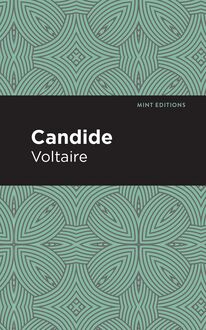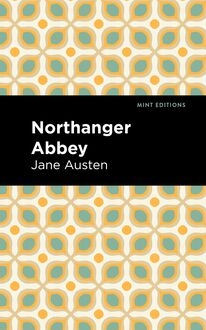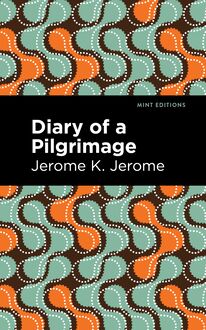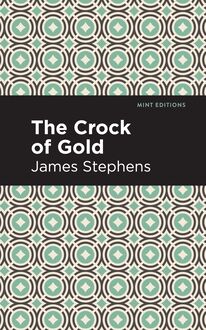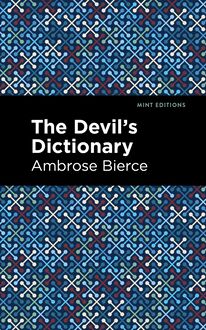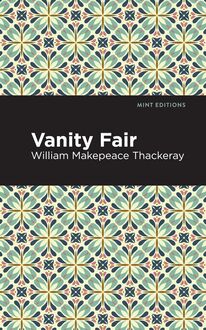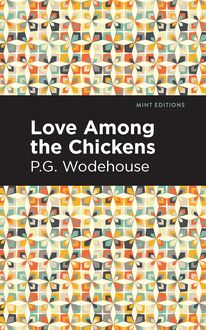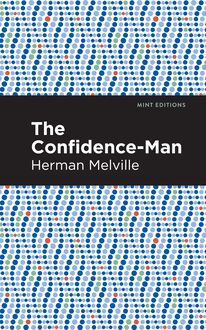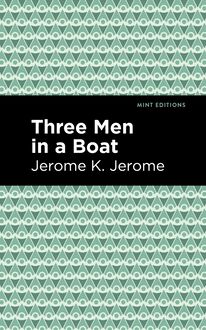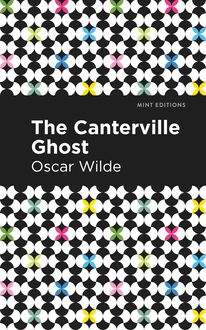-
 Univers
Univers
-
 Ebooks
Ebooks
-
 Livres audio
Livres audio
-
 Presse
Presse
-
 Podcasts
Podcasts
-
 BD
BD
-
 Documents
Documents
-
- Cours
- Révisions
- Ressources pédagogiques
- Sciences de l’éducation
- Manuels scolaires
- Langues
- Travaux de classe
- Annales de BEP
- Etudes supérieures
- Maternelle et primaire
- Fiches de lecture
- Orientation scolaire
- Méthodologie
- Corrigés de devoir
- Annales d’examens et concours
- Annales du bac
- Annales du brevet
- Rapports de stage
La lecture à portée de main
Vous pourrez modifier la taille du texte de cet ouvrage
Découvre YouScribe en t'inscrivant gratuitement
Je m'inscrisDécouvre YouScribe en t'inscrivant gratuitement
Je m'inscrisEn savoir plus
Vous pourrez modifier la taille du texte de cet ouvrage
En savoir plus

Description
The Cream of the Jest (1923) is a novel by James Branch Cabell. Set in a world where history and fantasy collide, where a lowly pawnbroker can encounter monsters, gods, and devils, The Cream of the Jest is one work in a series of novels, essays, and poems known as the Biography of the Life of Manuel. Partly inspired by the obscenity trial surrounding his novel Jurgen, a Comedy of Justice, The Cream of the Jest is a metafictional blend of literary criticism and fantasy fiction about an author whose sudden fame shocks his sleepy hometown. To the people of Lichfield, Felix Kennaston is an unremarkable neighbor whose literary ambitions are pursued in secrecy and obscurity. While completing a fantasy novel, he discovers a strange talisman not unlike the one his hero Horvendile presented to his beloved Ettare. That night, Felix meets Ettare in a dream, inspiring him to rewrite the story’s ending. When it is published, charges of obscenity threaten to sink his dreams before they can be realized. But critical attention has the opposite effect, making Kennaston a bestselling author overnight. Told from the perspective of Richard Harrowby, a neighbor from Lichfield, The Cream of the Jest is a fascinating blend of literary criticism and fantasy that poses important questions about the divide between fiction and the world we live in. Cabell’s work has long been described as escapist, his novels and stories derided as fantastic and obsessive recreations of a world lost long ago. To read The Cream of the Jest, however, is to understand that the issues therein—the struggle for power, the unspoken distance between men and women—were vastly important not only at the time of its publication, but in our own, divisive world. With a beautifully designed cover and professionally typeset manuscript, this edition of James Branch Cabell’s The Cream of the Jest is a classic of fantasy and romance reimagined for modern readers.
Sujets
Informations
| Publié par | Mint Editions |
| Date de parution | 03 août 2021 |
| Nombre de lectures | 0 |
| EAN13 | 9781513297286 |
| Langue | English |
Informations légales : prix de location à la page 0,0450€. Cette information est donnée uniquement à titre indicatif conformément à la législation en vigueur.
Extrait
The Cream of the Jest
James Branch Cabell
The Cream of the Jest was first published in 1917.
This edition published by Mint Editions 2021.
ISBN 9781513295787 | E-ISBN 9781513297286
Published by Mint Editions®
minteditionbooks.com
Publishing Director: Jennifer Newens
Design & Production: Rachel Lopez Metzger
Project Manager: Micaela Clark
Typesetting: Westchester Publishing Services
C ONTENTS B OOK F IRST I. I NTRODUCES THE A GELESS W OMAN II. W HEREIN A C LERK A PPRAISES A F AIR C OUNTRY III. O F THE D OUBLE -D EALER ’ S T RAFFIC W ITH A K NAVE IV. H OW THE D OUBLE -D EALER W AS OF T WO M INDS V. T REATS OF M AUGIS D’A IGREMONT ’ S P OTTAGE VI. J OURNEYS E ND : W ITH THE C USTOMARY U NMASKING B OOK S ECOND I. O F A T RIFLE F OUND IN T WILIGHT II. B EYOND U SE AND W ONT F ARES THE R OAD TO S TORISENDE III. O F I DLE S PECULATIONS IN A L IBRARY IV. H OW T HERE W AS A L IGHT IN THE F OG V. O F P UBLISHING : W ITH AN U NLIKELY A PPENDIX VI. S UGGESTING T HEMES OF U NIVERSAL A PPEAL VII. P ECULIAR C ONDUCT OF A P ERSONAGE VIII. O F V AIN R EGRET AND W ONDER IN THE D ARK B OOK T HIRD I. T HEY C OME TO A H IGH P LACE II. O F THE S IGIL AND O NE U SE OF I T III. T REATS OF A P RELATE AND , IN P ART , OF P IGEONS IV. L OCAL L AWS OF N EPHELOCOCCYGIA V. O F D IVERS F LESHLY R IDDLES VI. I N P URSUIT OF A W HISPER VII. O F T RUISMS : T REATED R EASONABLY B OOK F OURTH I. E CONOMIC C ONSIDERATIONS OF P IETY II. D EALS WITH P EN S CRATCHES III. B Y -P RODUCTS OF R ATIONAL E NDEAVOR IV. “E PPER S I M UOVE ” V. E VOLUTION OF A V ESTRYMAN B OOK F IFTH I. O F P OETIC L OVE : T REATED WITH P OETIC I NEFFICIENCY II. C ROSS -P URPOSES IN S PACIOUS T IMES III. H ORVENDILE TO E TTARRE : A T W HITEHALL IV. H ORVENDILE TO E TTARRE : A T V AUX - LE -V ICOMTE V. H ORVENDILE TO E TTARRE : I N THE C ONCIERGERIE VI. O F O NE E NIGMA THAT T HREATENED TO P ROVE A LLEGORICAL VII. T REATS OF W ITCHES , M IXED D RINKS , AND THE W EATHER B OOK S IXTH I. S UNDRY D ISCLOSURES OF THE P RESS II. C ONSIDERATIONS TOWARD S UNSET III. O NE W AY OF E LUSION IV. P AST S TORISENDE F ARES THE R OAD OF U SE AND W ONT V. W HICH M R . F LAHERTY D OES N OT Q UITE E XPLAIN
BOOK FIRST
“Give place, fair ladies, and begone,
Ere prīde hath had a fall!
For here at hand approacheth one
Whose grace doth stain you all.
“Ettarre is well compared
Unto the Phœnix kind,
Whose like was never seen or heard,
That any man can find.”
I
I NTRODUCES THE A GELESS W OMAN
T he tale tells how Count Emmerick planned a notable marriage-feast for his sister La Beale Ettarre and Sir Guiron des Rocques. The tale relates that, in honor of this wedding, came from Nacumera, far oversea, Count Emmerick’s elder sister Dame Melicent and her husband the Comte de la For ê t, with an outlandish retinue of pagan slaves that caused great wonder. All Poictesme took holiday. The tale narrates how from Naimes to Lisuarte, and in the wild hill-country back of Perdigon, knights made ready for the tournament, traveling toward Storisende in gay silken garments such as were suited to these new times of peace. The highways in those parts shone with warriors, riding in companies of six or eight, wearing mantles worked in gold, and mounted upon valuable horses that glittered with new bits and housings. And the tale tells, also, how they came with horns sounding before them.
Ettarre watched from the turrets of Storisende, pensively. Yet she was happy in these days. “Indeed, there is now very little left this side of heaven for you to desire, madame,” said Horvendile the clerk, who stood beside her at his service.
“No, there is nothing now which troubles me, Horvendile, save the thought of Maugis d’Aigremont. I cannot ever be sure of happiness so long as that man lives.”
“So, so!” says Horvendile—“ah, yes, a master-villain, that! He is foiled for the present, and in hiding, nobody knows where; but I, too, would not wonder should he be contriving some new knavery. Say what you may, madame, I cannot but commend his persistency, however base be his motives; and in the forest of Bovion, where I rescued you from his clutches, the miscreant spoke with a hellish gusto that I could have found it in my heart to admire.”
Ettarre had never any liking for this half-scoffing kind of talk, to which the clerk was deplorably prone. “You speak very strangely at times, Horvendile. Wickedness cannot ever be admirable; and to praise it, even in jest, cannot but be displeasing to the Author of us all.”
“Eh, madame, I am not so sure of that. Certainly, the Author of those folk who have figured thus far in your history has not devoted His talents to creating perfect people.”
She wondered at him, and showed as much in the big blue eyes which had troubled so many men’s sleep. “Since time began, there has lived no nobler person or more constant lover than my lord Guiron.”
“Oh, yes, Sir Guiron, I grant you, is very nearly immaculate,” said Horvendile; and he yawned.
“My friend, you have always served him faithfully. We two cannot ever forget how much we have owed in the past to your quick wits and shrewd devices. Yet now your manner troubles me.”
Dame Ettarre spoke the truth, for, knowing the man to be unhappy—and suspecting the reason of his unhappiness, too—she would have comforted him; but Horvendile was not in a confiding mood. Whimsically he says:
“Rather, it is I who am troubled, madame. For envy possesses me, and a faint teasing weariness also possesses me, because I am not as Sir Guiron, and never can be. Look you, they prepare your wedding-feast now, your former sorrows are stingless; and to me, who have served you through hard seasons of adversity, it is as if I had been reading some romance, and had come now to the last page. Already you two grow shadowy; and already I incline to rank Sir Guiron and you, madame, with Arnaud and Fregonde, with Palmerin and Polinarda, with Gui and Floripas—with that fair throng of noted lovers whose innocuous mishaps we follow with pleasant agitation, and whom we dismiss to eternal happiness, with smiling incredulity, as we turn back to a workaday world. For it is necessary now that I return to my own country, and there I shall not ever see you any more.”
Ettarre, in common with the countryside, knew the man hopelessly loved her; and she pitied him today beyond wording. Happiness is a famed breeder of magnanimity. “My poor friend, we must get you a wife. Are there no women in your country?”
“Ah, but there is never any woman in one’s own country whom one can love, madame,” replies Horvendile shrewdly. “For love, I take it, must look toward something not quite accessible, something not quite understood. Now, I have been so unfortunate as to find the women of my country lacking in reticence. I know their opinions concerning everything—touching God and God’s private intentions, and touching me, and the people across the road—and how these women’s clothes are adjusted, and what they eat for breakfast, and what men have kissed them: there is no room for illusion anywhere. Nay, more: I am familiar with the mothers of these women, and in them I see quite plainly what these women will be some twenty years from this morning; there is not even room for hope. Ah, no, madame; the women of my country are the pleasantest of comrades, and the helpfullest of wives: but I cannot conceal it from myself that, after all, they are only human beings; and therefore it has never been possible for me to love any one of them.”
“And am I not, then, a human being, poor Horvendile?”
There was a tinge of mischief in the query; but beauty very often makes for lightheadedness, both in her that has and in him that views it; nor between Ind and Thule was there any lovelier maid than Ettarre. Smiling she awaited his answer; the sunlight glorified each delicate clarity of color in her fair face, and upon her breast gleamed the broken sigil of Scoteia, that famed talisman which never left her person. “And am I not, then, a human being?” says she.
Gravely Horvendile answered: “Not in my eyes, madame. For you embody all that I was ever able to conceive of beauty and fearlessness and strange purity. Therefore it is evident I do not see in you merely Count Emmerick’s third sister, but, instead, that ageless lovable and loving woman long worshiped and sought everywhere in vain by all poets.”
Horvendile meditated for a while. “Assuredly, it was you of whom blind Homer dreamed, comforting endless night with visions of your beauty, as you sat in a bright fragrant vaulted chamber weaving at a mighty loom, and embroidering on tapestry the battles men were waging about Troy because of your beauty; and very certainly it was to you that Hermes came over fields of violets and parsley, where you sang magic rhymes, sheltered by an island cavern, in which cedar and citron-wood were burning—and, calling you Calypso, bade you release Odysseus from the spell of your beauty. Sophocles, too, saw you bearing an ewer of bronze, and treading gingerly among gashed lamentable corpses, lest your loved dead be dishonored; and Sophocles called you Antigon ê , praising your valor and your beauty. And when men named you Bombyca, Theocritus also sang of your grave drowsy voice and your feet carven of ivory, and of your tender heart and all your honey-pale sweet beauty.”
“I do not remember any of these troubadours you speak of, my poor Horvendile; but I am very certain that if they were poets they, also, must in their time have talked a great deal of nonsense.”
“And as Mark’s Queen,” says Horvendile, intent on his conceit, “you strayed with Tristran in the sunlit glades of Morois, that high forest, where many birds sang full-throated in the new light of spring; as Medeia you fled from Colchis; and as Esclairmonde you delivered Huon from the sardonic close wiles of heathenry, which to you seemed childish. All poets have had these fitful glimpses of you, Ettarre, and of that perfect beauty which
-
 Univers
Univers
-
 Ebooks
Ebooks
-
 Livres audio
Livres audio
-
 Presse
Presse
-
 Podcasts
Podcasts
-
 BD
BD
-
 Documents
Documents
-
Jeunesse
-
Littérature
-
Ressources professionnelles
-
Santé et bien-être
-
Savoirs
-
Education
-
Loisirs et hobbies
-
Art, musique et cinéma
-
Actualité et débat de société
-
Jeunesse
-
Littérature
-
Ressources professionnelles
-
Santé et bien-être
-
Savoirs
-
Education
-
Loisirs et hobbies
-
Art, musique et cinéma
-
Actualité et débat de société
-
Actualités
-
Lifestyle
-
Presse jeunesse
-
Presse professionnelle
-
Pratique
-
Presse sportive
-
Presse internationale
-
Culture & Médias
-
Action et Aventures
-
Science-fiction et Fantasy
-
Société
-
Jeunesse
-
Littérature
-
Ressources professionnelles
-
Santé et bien-être
-
Savoirs
-
Education
-
Loisirs et hobbies
-
Art, musique et cinéma
-
Actualité et débat de société
- Cours
- Révisions
- Ressources pédagogiques
- Sciences de l’éducation
- Manuels scolaires
- Langues
- Travaux de classe
- Annales de BEP
- Etudes supérieures
- Maternelle et primaire
- Fiches de lecture
- Orientation scolaire
- Méthodologie
- Corrigés de devoir
- Annales d’examens et concours
- Annales du bac
- Annales du brevet
- Rapports de stage
